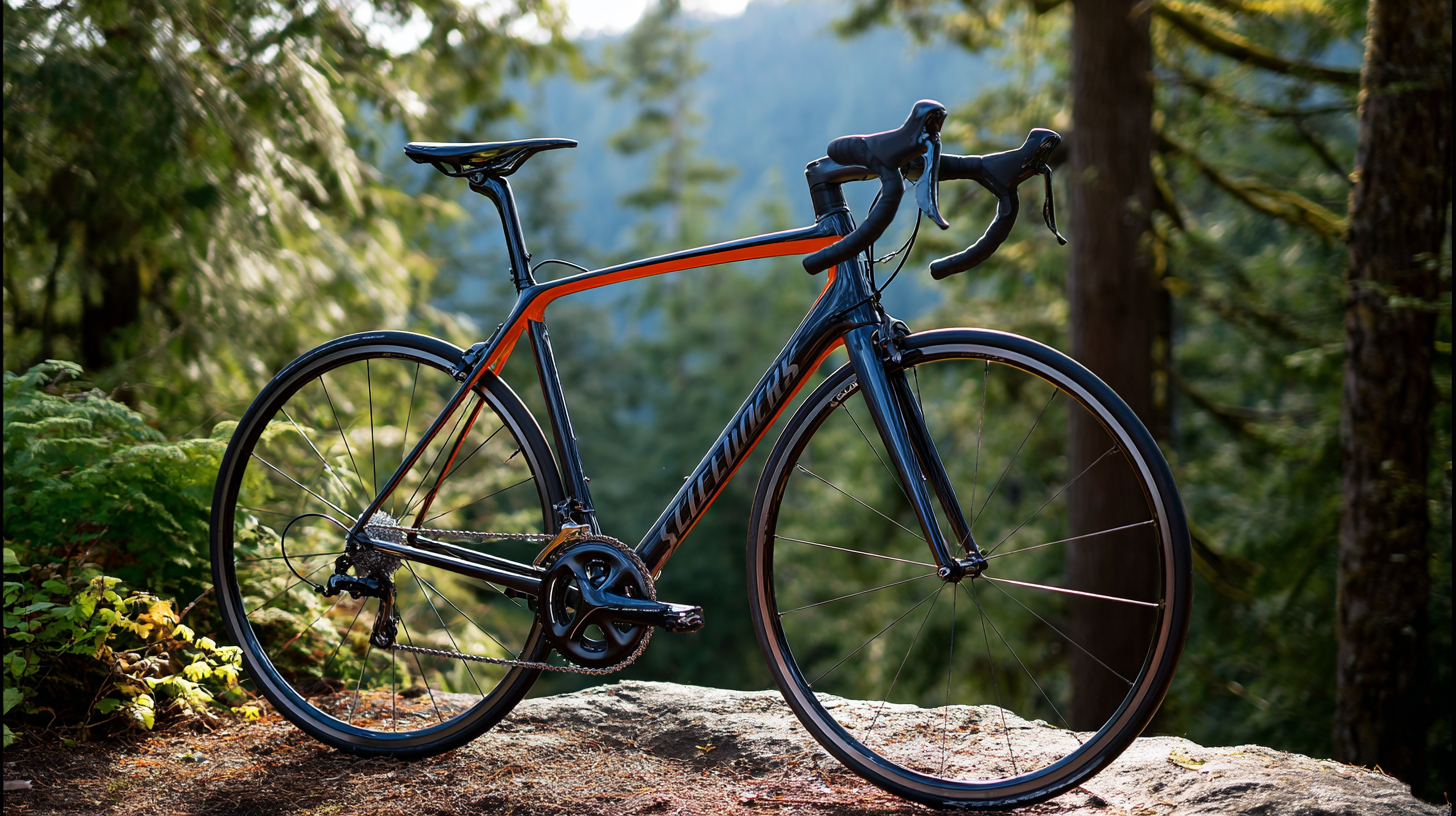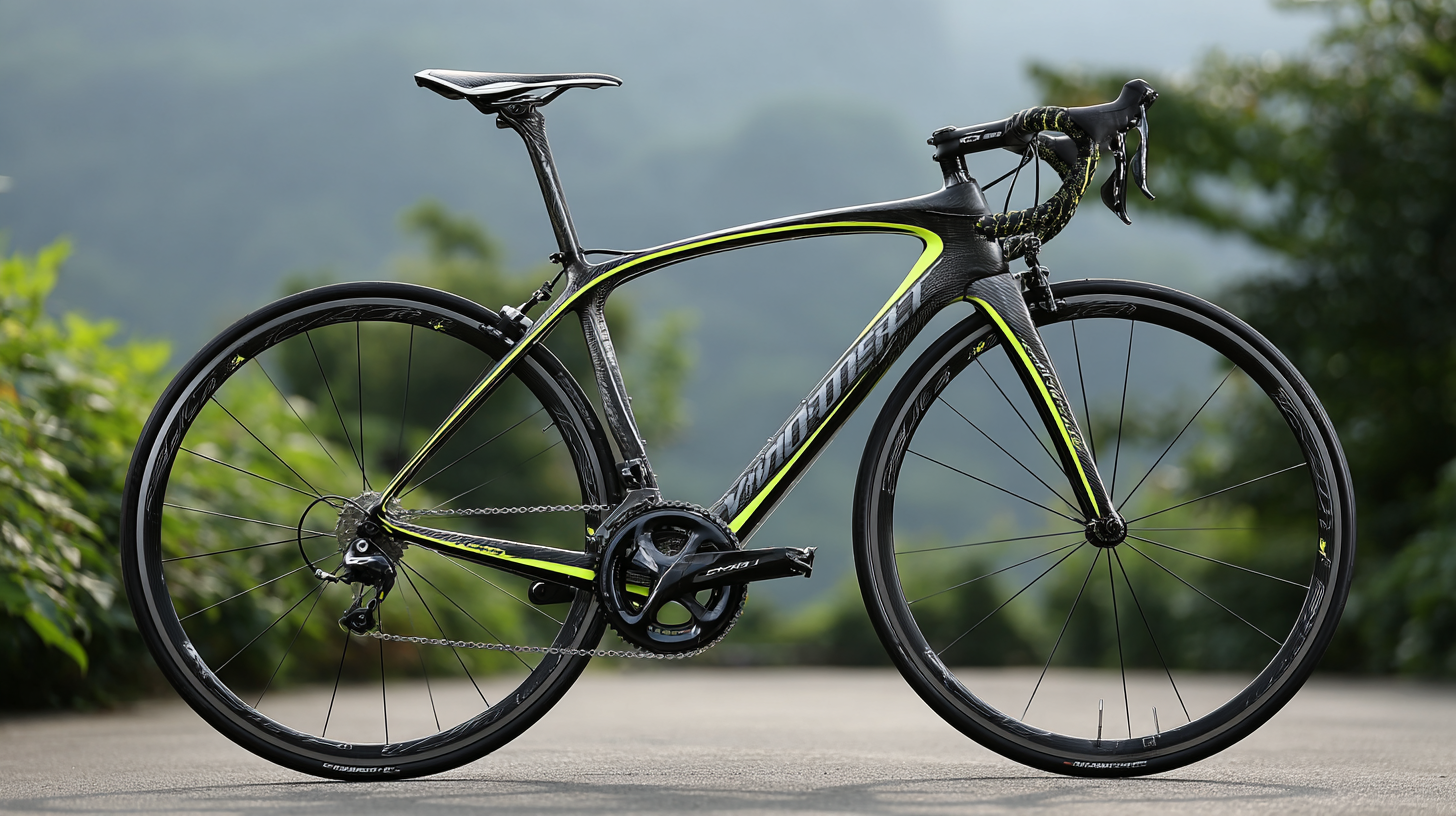When it comes to selecting the perfect Carbon Fork Road Bike, the choice of manufacturer plays a crucial role in the overall performance and satisfaction of the rider. According to a recent industry report by the National Bicycle Dealers Association, the demand for high-performance road bikes has surged by over 25% in the past two years, driven largely by advancements in materials and technology. Carbon fiber, renowned for its remarkable strength-to-weight ratio, has become the material of choice for professional cyclists and enthusiasts alike. However, with an increasing number of manufacturers entering the market, it is essential to evaluate each option carefully. The right manufacturer not only ensures superior craftsmanship and innovative designs but also significantly impacts durability and riding experience. In this tutorial, we will delve into expert comparisons of leading brands and guide you in making an informed decision to enhance your cycling journey with the ideal Carbon Fork Road Bike.

When it comes to road bike performance, one of the most significant advancements in design is the adoption of carbon forks. These forks provide several advantages over traditional aluminum or steel counterparts, primarily in terms of weight, stiffness, and vibration damping. The lightweight nature of carbon helps to reduce the overall weight of the bike, allowing for more agile handling and improved climbing capabilities. Riders can experience faster acceleration and less fatigue over long distances, making carbon forks an essential component for serious cyclists.
In addition to weight savings, carbon forks excel in stiffness, which enhances power transfer during pedaling. Unlike metal forks, carbon can be engineered to provide optimal stiffness without sacrificing comfort. This means that when cyclists push hard on the pedals, most of their energy goes directly into propulsion rather than flexing the bike. Furthermore, the vibration-damping properties of carbon absorb road shocks, leading to a smoother ride. This reduction in road vibrations can significantly improve performance on rough terrain, allowing for longer, more enjoyable rides without the discomfort that often comes with endurance cycling.
Choosing the right manufacturer for your carbon fork road bike is crucial for optimizing performance, safety, and overall riding experience. When selecting a trusted carbon fork manufacturer, one of the key factors to consider is their reputation in the industry. Look for manufacturers with a proven track record of producing high-quality carbon components. Reviews and testimonials from other cyclists can provide valuable insights into the durability and performance of their products, helping you make an informed decision.

Another important aspect is the manufacturer’s adherence to safety standards and certifications. It is essential to choose a company that complies with industry regulations and performs rigorous testing on their products. This not only ensures the structural integrity of the carbon fork but also enhances rider safety. Additionally, consider the after-sales support offered by the manufacturer. Responsive customer service and warranty options reflect a manufacturer’s commitment to quality and customer satisfaction, which can add peace of mind to your purchase.
When selecting the best carbon fork for your road bike, it’s crucial to dive into a comparative analysis of leading brands and their innovative technologies. Brands like Getaway and Futura have pushed the limits of design and material efficiency, with recent reports indicating that forks incorporating advanced carbon layering can reduce weight by up to 20% while enhancing durability. According to a 2023 cycling industry report, a well-constructed carbon fork can significantly enhance ride quality, providing better vibration dampening and improved handling.
**Tip:** Always look for forks with a manufacturer’s warranty that reflects confidence in the product's durability. This can indicate a commitment to quality and innovation.
Furthermore, the integration of aerodynamic designs in carbon forks has become a game-changer. For instance, leading brands are now producing forks that not only minimize drag but also allow for better brake compatibility and tire clearance. The 2023 Bicycle Performance Index found that aerodynamic improvements can lead to an increase in speed of at least 2-3% under certain conditions, making a substantial difference during competitive rides.
**Tip:** Consider taking a test ride with different fork designs to understand how each affects handling and comfort, as personal experience can be invaluable when making your choice.

When selecting the ideal carbon fork for your road bike, riders must consider three critical factors: weight, stiffness, and comfort. These elements significantly influence the overall riding experience, affecting performance and enjoyment on various terrains. A lighter carbon fork enhances agility and speed, allowing cyclists to tackle hills more efficiently. Conversely, the right level of stiffness ensures that power is transmitted effectively from the pedals, maximizing energy output and providing a responsive feel during rides.
However, comfort should not be overlooked. The fork's design can impact how vibrations are absorbed, which is crucial for long rides where rider fatigue can set in. In recent research on ride comfort across different contexts, such as automobiles and high-speed trains, it has been demonstrated that vibration transmissibility plays a pivotal role in enhancing comfort levels for riders. The same principles apply to road bike forks; those designed with advanced materials and engineering can dampen road vibrations, ensuring a smoother ride. Therefore, thorough evaluations of these characteristics are essential when comparing manufacturers to find the best fit for your cycling needs.
This chart compares the weight, stiffness, and comfort index of three different carbon forks for road bikes, providing insights into their performance characteristics.
When selecting a carbon fork for your road bike, understanding the importance of certification and testing standards is paramount for ensuring quality and performance. Reputable manufacturers adhere to stringent guidelines set by industry standards organizations, which oversee the testing and certification of materials. This process involves subjecting forks to rigorous stress tests that simulate real-world conditions, ensuring they can withstand the demands of racing and daily rides alike. Knowing a fork has passed these tests can provide peace of mind and enhance rider confidence.
Additionally, certification marks can serve as a quick reference for consumers, indicating that a product meets specific safety and performance criteria. Look for forks that carry certifications such as ISO or CEN, which denote compliance with international safety standards. These certifications not only reflect the manufacturer's commitment to quality but also help consumers make informed decisions when choosing components for their road bikes. Investing in a certified carbon fork can significantly improve your overall riding experience, allowing you to focus on the road ahead with assurance in your equipment.
